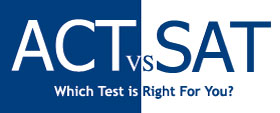PLAN
The PLAN is the pre-ACT test taken to help students predict how well they will do on the ACT and, in some cases, can have bearing on scholarship. It is a comprehensive guidance tool that helps a student measure their academic development, explore career/training options, and make plans for the remaining years of high school and post-graduation years.
When do I take the test? The PLAN is taken during the tenth grade.
How do I register? The PLAN is usually administered by high schools. See your guidance counselor for more information or go to www.actstudent.org/plan.
What is the test's structure? PLAN is a four part multiple-choice test structured very similarly to the ACT with sections covering english, math, reading and science.
- The English section will have four passages which test the student's understanding of standard written English Mechanics (punctuation, grammar and sentence structure) and rhetorical skills (by means of understanding strategy, style, and organization).
- The Math section is a mathematics reasoning test that tests the math concepts usually covered in the 1st and/or second year of high school (pre-algebra, algebra I, and plane geometry).
- The Reading test measures reading comprehension while assessing student' skills like: attention to details, ability to draw conclusions, comparisons or generalizations based on the information presented. The test will present three distinct passages: social sciences, humanities (literature, history, philosophy, etc.), and prose fiction.
- The Science Test measures scientific reasoning skills, based on material that is typically taught in first- and second-year high school general science courses. The test is time sensitive; it presents five sets of scientific information and its respective questions which need to be answered in 25 minutes.
|
ACT
This standardized test is designed to assess high school students' general educational development and their readiness to complete college-level work. It is used for college admission decisions, some scholarship qualifications and NCAA eligibility. All U.S. colleges and universities accept ACT results.
When do I take the test? The ACT is offered six times during a given school year. These are usually in September, October, December, February, April and June. Students generally take the test first during the spring of their junior year. It is usually best to take it as early as possible, as you may want to take the test again to get your best score possible. For exact dates you can go to: http://www.actstudent.org/regist/dates.html.
When and how do I register? A registration packet should be available at your high school, but you may also register online at www.actstudent.org.
Try to register at least 8 weeks in advance. The sooner you register the easier it is to get your ideal location. Each test date has its own registration deadlines and locations available.
What is the test's structure? The ACT consists of four multiple-choice tests in English, math, reading, and science, as well as an optional writing test. We highly recommend you take the optional essay. Many times students decide not to take it and colleges ask that they take them again. Here is a more detailed explanation of each section:
- The English test is a 75-question, 45-minute test, covering mechanics and rhetorical skills similar to the PLAN test above. The test will contain five different types of prose passages, each one accompanied by multiple-choice test questions.
- The Math test is a 60-question, 60-minute test designed to measure the mathematical skills students have typically acquired by the end of 11th grade (pre-algebra, algebra I, algebra II, coordinate geometry, plane geometry, and trigonometry.) The questions presented require reasoning skills to solve practical problems in math. Students will be allowed to use an approved calculator but will not be required to perform any extensive computations.
- The Reading test is a 40-question, 35-minute test that measures reading comprehension. Students are asked to read several passages and answer questions that show understanding of what might be stated or implied in the passages. The test comprises passages that are representative of the reading required in first-year college level courses. Passages will cover topics in social studies, natural sciences, prose fiction, and the humanities.
- The Science Test is a 40-question, 35-minute test that measures skills required in sciences like: interpretation, analysis, evaluation, reasoning, and problem solving. The test assumes that students have taken three years or more of high school science courses. The test presents seven sets of scientific information (graphs, tables, summaries, conflicting view points, etc.) each followed by a number of multiple-choice test questions. The question will require a good understanding of the concepts presented and critical analysis of the information presented as to draw conclusions or generalizations.
- The Writing Test is a 30-minute essay test that measures writing skills. An issue is defined and described in a prompt with two points of view on that issue. Students need to take a position on the issue and present it in their essay.
How is it scored? Each subject (English, Math, Reading and Science) is scored 1-36 and then the composite score is calculated as an average, the highest being a 36 overall. The scores are rounded to the nearest whole number. Fractions less than one-half are rounded down; fractions one-half or more are rounded up. Each score is a scale score – which means that is equivalent to all the different forms of the ACT, no matter which test date a test was taken. Since the ACT Essay section is optional, it score does not affect the overall Composite score.
How many times can I take the test? A student can take the test multiple times without penalties. But we recommend no more than three. More than that might be obsessive. However, if a student takes the test ONLY once or twice and does not get the school's expected score, it might be perceived by colleges that the student is not willing to work hard enough.
What should I bring to the test? You should bring an approved calculator, a snack, pencils and your ticket and a picture ID. Do not bring your phone.
Which Calculators are approved? Many well-known brand calculators are prohibited such as the following: Texas Instruments: any model that begins with TI-89 or TI-92 or the TI-Nspire CAS—(TI-Nspire (non-CAS) is permitted); Hewlett-Packard: hp 48GII and any models that begin with hp 40G or hp 49G; Casio: Algebra fx 2.0, ClassPad 300, and any model that begin with CFX-9970G. In essence any calculator with a built-in computer algebra system will not be allowed. For up to date information on prohibited calculators please visit: http://www.actstudent.org/faq/calculator.html.
What are the costs of the test? The test costs change year by year; in 2013 it is $52.50 when you include the writing section. For updated information on fees please visit http://www.actstudent.org/regist/actfees.html.
Can I change a date once registered? Yes, life situation may keep your student from being able to meet a previous commitment and thus you may need to change a date. The ACT organization will charge a change date fee that at the present time is $21.
Can I get a copy of the test? Yes, you may if you order the Test Information Release (TIR) it within three months of the date in which the test was taken but ONLY the following test dates: December, April and June. For more information about this service please go to http://www.actstudent.org/scores/release.html.
What is the registration schedule for the current academic year and when should I start preparing?
Below is a brief summary to the ACT test dates for the current academic year and our suggested start date to prepare based on an average 10 week preparation time. Call us at least 10 to 12 weeks ahead of a test date to get a diagnosis of what is needed for your particular case and to be able to get you into our schedule.
It will all depend on the date – see our OFFICIAL TEST TRACKER. (view now)
Is the ACT easier than the SAT? No. However, here's a better question: "Is the ACT easier or better than the SAT for me?" The best way to determine this is to take Chyten's ACT vs. SAT Comparison Test. Some students definitely do find the ACT to be easier than the SAT, while others find it equally or even more difficult. The ACT tends to be more straightforward and less cryptic than the SAT. ACT has a Science section; 84% of the ACT Science questions involve data analysis, mostly interpreting graphs and charts. ACT grammar has different emphasis than does SAT grammar and the questions are all reading-passage based. Many consider the ACT Reading section to be harder than the SAT Reading section. For many it is difficult to finish on time. Unlike questions on the SAT, ACT reading questions do not follow the order of the passage. Slow readers may have a great deal of difficulty with the ACT.
Should I take the ACT in addition to the SAT? No. For most students, that is not a very good idea. First, figure out which test is best, then focus on that test. Chyten's ACT vs. SAT Comparison Test is a great place to start.
I have heard that Midwest colleges prefer the ACT, while East Coast and West Coast colleges prefer the SAT. Is this true? No. Colleges do not prefer one over the other. Marlyn McGrath-Lewis, director of admissions at Harvard University says, "Either is fine with us, and we don't have a feeling that either favors students with any particular profile.” It would be a difficult to find one college that does not accept the ACT as readily as it accepts the SAT. Some colleges even accept the ACT in lieu of both SAT and SAT Subject Tests!
To learn more about the Official PSAT and SAT tests, click here.
To learn more about the Official ACT test, click here.
For more information on our ACT or SAT test prep classes or diagnostic comparison test register now.
The ACT© is registered trademark of the ACT.org |
 | ACT.ORG TESTS
| ACT.ORG TESTS

